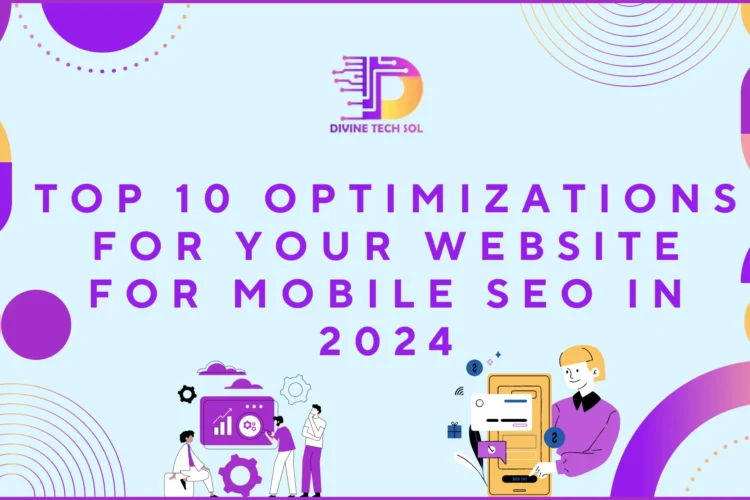
Introduction
In today’s digital landscape, small businesses must compete with larger enterprises for online visibility. Affordable SEO services can bridge this gap, offering essential strategies that elevate small businesses’ online presence without breaking the bank. This guide delves into the most effective and budget-friendly SEO techniques tailored for small businesses.
Understanding Affordable SEO
Affordable SEO services prioritize cost-effective strategies that provide high returns on investment (ROI). These services include on-page optimization, local SEO, content marketing, and more. The goal is to enhance online visibility, drive organic traffic, and increase conversions.
The Pillars of Affordable SEO
1. Keyword Research: The Foundation of SEO
Keyword research is the cornerstone of SEO, crucial for identifying terms potential customers use to find products or services. Tools like Google’s Keyword Planner, Ahrefs, and SEMrush help businesses discover relevant keywords, including long-tail variations that are less competitive but highly specific.
Key Techniques:
- Identify Core Keywords: Focus on industry-specific terms that align with your business offerings.
- Explore Long-Tail Keywords: Target specific phrases with lower competition and higher conversion potential.
2. On-Page Optimization: Enhancing Website Structure and Content
On-page SEO involves optimizing individual web pages to rank higher and earn more relevant traffic. This includes optimizing meta titles, descriptions, headers, and content.
Key Techniques:
- Meta Tags Optimization: Craft compelling meta titles and descriptions that include target keywords.
- Header Tags (H1, H2, etc.): Use headers to structure content, making it more readable and SEO-friendly.
- Content Quality: Ensure content is informative, keyword-optimized, and provides value to readers.
3. Local SEO: Capturing Local Markets
Local SEO focuses on optimizing a website for local search results, which is vital for small businesses serving specific geographical areas.
Key Techniques:
- Google My Business (GMB): Create and optimize a GMB profile with accurate business information, including address, phone number, and hours of operation.
- Local Citations: Ensure consistent NAP (Name, Address, Phone Number) information across online directories.
- Local Reviews: Encourage satisfied customers to leave positive reviews on platforms like Google and Yelp.
4. Content Marketing: Building Authority and Engagement
High-quality content not only attracts visitors but also establishes a business as an authority in its field. Content marketing includes blogs, articles, infographics, and videos.
Key Techniques:
- Blogging: Regularly update your website with informative and engaging blog posts that target relevant keywords.
- Guest Posting: Write guest posts for reputable websites in your niche to build backlinks and increase domain authority.
- Multimedia Content: Use images, videos, and infographics to enhance content appeal and shareability.
5. Link Building: Boosting Website Authority
Backlinks from reputable websites are crucial for improving search engine rankings. Link building should focus on quality over quantity.
Key Techniques:
- Guest Blogging: Secure guest posts on high-authority sites.
- Influencer Outreach: Collaborate with influencers in your industry to gain mentions and backlinks.
- Directory Submissions: List your business in reputable online directories.
The Role of Technical SEO
Technical SEO ensures that a website meets the technical requirements of search engines, which includes aspects like mobile-friendliness, secure HTTPS, and fast page loading speeds.
Key Techniques:
- Mobile Optimization: Ensure your website is responsive and offers a seamless experience across all devices.
- Site Speed Optimization: Use tools like Google PageSpeed Insights to identify and fix issues affecting load times.
- Secure Sockets Layer (SSL): Implement SSL to secure user data and improve search engine rankings.
Measuring SEO Success: Key Metrics and Tools
Tracking the success of SEO strategies is crucial for ongoing optimization. Key metrics include organic traffic, bounce rate, conversion rate, and keyword rankings.
Recommended Tools:
- Google Analytics: Provides insights into website traffic, user behavior, and conversion tracking.
- Google Search Console: Offers data on website performance, including search queries, backlinks, and technical issues.
- Ahrefs and SEMrush: Advanced tools for tracking keyword rankings, backlink profiles, and competitor analysis.
Common SEO Challenges for Small Businesses
Small businesses often face unique challenges in SEO, such as limited budgets and resources. Addressing these challenges requires strategic planning and a focus on the most impactful SEO tactics.
Solutions:
- Prioritize High-Impact Tactics: Focus on strategies that offer the best ROI, such as local SEO and content marketing.
- Leverage Free Tools: Utilize free SEO tools like Google Analytics and Search Console to monitor performance.
- Continuous Learning: Stay updated with the latest SEO trends and algorithm updates to adapt strategies accordingly.
Conclusion
Implementing affordable SEO services is not just about cutting costs; it’s about maximizing efficiency and ensuring that every effort contributes to a stronger online presence. By focusing on core SEO strategies and continuously optimizing efforts, small businesses can achieve significant growth and compete effectively in the digital marketplace.





